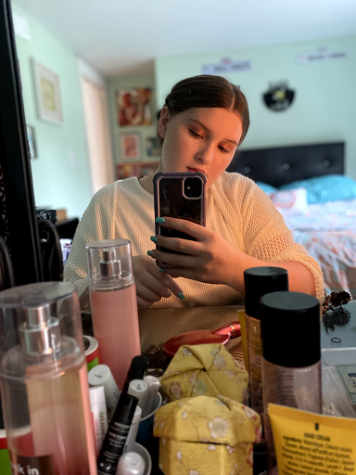Tips to Help You Get Ready for Big Tests

May 22, 2017
Exams are just around the corner Weedsport Students! So we decided we would give our best tips for studying and de-cluttering to make this test season not as stressful.
Organize Your Study Space
It’s important to make sure you have a spacious place to study. Whether that is a desk or your dining room table, it’s vital to have room to spread out all of your work in an organized matter. Trust us when we say that if you feel disorganized, this is the best first step to at least make you feel like you have your life together. Try getting rid of any distractions around you. For some, background music is effective, and for others, complete silence. Ask yourself, do I have enough light? Is my chair comfy and practical?
Even small things like this could make a huge difference when you really need to focus.
Organize Study Groups with Friends
Getting together with your friends is important. Although you need to set limits when studying with friends because we all know you’re gonna goof around a lot before actually studying. Make sure that these friends are reliable. Set a certain amount of time where you will it down and study. You make have questions that they have the answers to and vice versa.
Practice on Old Exams
I can’t tell you how many times I’ve regretted not asking for more practice questions. Your teachers want to help you, so it wouldn’t hurt to ask for more practice or old exams to look at. Doing old exams will not only help you study, but it will also get you used to the format for the actual exam. Try timing yourself as well if you’re worried about not finishing in time. Simple things like this can make getting ready for that big test easier, and less stressful.
Take Regular Breaks
Yes, I get it. You put off studying for the past week and your exam is tomorrow. So, naturally you’re gonna try and cram all night, but be careful. This can actually be very counterproductive. If you’re running a marathon you don’t run all day every day 24/7. You have to take breaks. I find that if I’m stuck on a certain topic it’s best for me to take a break from thinking so hard and then look at it again 10 mins later. It’s pretty amazing that I can see the problem in a totally different way, almost like a reset of my brain. Everyone is different so make a routine that suits your needs. If you feel better studying in the morning then review some notes before heading off to school. Or, if you’re more productive at night time try getting in some studying before you go to bed. In order to become a better student, it’s vital to know your limits.
Find Out What Type of Learner You Are
While schools have made a conscious effort to include more inclusive teaching methods, some kids who may be hard workers are still struggling in school due to a type of studying not clicking with them. I know personally I find it very difficult to learn from a long form textbook, as the process prevents me from retaining any information I’ve read about and leaves me feeling frustrated. It’s hard to recommend any one method as everyone has a weird method that will most likely not work for the person next to them, but be sure to branch out and try as many methods as possible. One universal method is when you’re in class or reading, simply write down the information, even if you’re not planning on looking at it ever again. The simple action will make it stick out in your mind more than simply reading.
Developing a Good Sleeping Schedule
No one is going to sit here and pretend that no matter how vigilant you are, schoolwork and the stresses of life will always catch up to you. However, while long work nights may happen occasionally, this does not mean you should make this a regular excursion. Studying late at night before a test not only lowers the chance of retaining or processing useful knowledge, i.e entering a state of simply droning on while your brain’s inactive. On top of this, lack of sleep could lead to a continuation of this state, with an inability to recall studied knowledge, may take longer to comprehend even basic concepts, and may even lead to frustration and anger, furthering distractions. It’s important to go to bed early, as teenagers require about 10 hours of sleep to work at peak capacity, and to go to sleep at a similar time every night for at least two weeks before a test to avoid “Sleep Exhaustion.” While it may seem almost impossible to change sleeping habits once you’ve gotten used to a certain sleep schedule, with tips provided by a Harvard study below prove, as the writer says, “Old habits die easy”:
-maintaining a regular sleep-wake schedule
-avoiding caffeine, alcohol, nicotine, and other chemicals that interfere with sleep
-making your bedroom a comfortable sleep environment
-establishing a calming pre-sleep routine
-going to sleep when you’re truly tired
-not watching the clock at night
-using light to your advantage by exposing yourself to light during the day and limiting -light exposure in the evening
-not napping too close to your regular bedtime
-eating and drinking enough—but not too much or too soon before bedtime
-exercising regularly—but not too soon before bedtime
http://healthysleep.med.harvard.edu/need-sleep/what-can-you-do/good-sleep-habits
http://www.developgoodhabits.com/study-schedule/









